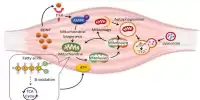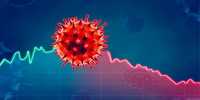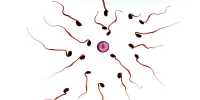Researcher Found Hormone to Suppress Hunger Could help out Obesity
If there was a hormone in your body whose chief job was to make you feel hungry, most of us probably wouldn’t be too keen on it. New findings suggest a hormone called Lipocalin-2 could be used as a potential treatment for obesity. A hormone that can suppress food intake and increase the feeling of fullness in mice has shown similar results in humans and non-human primates say a new study published today in eLife.
In recent research, scientists have discovered a hormone that can suppress food intake and increase the feeling of fullness in mice has shown similar results in humans and non-human primates.
Leptin is a hormone, made by fat cells, that decreases your appetite. Ghrelin is a hormone that increases appetite, and also plays a role in body weight. The hormone, called Lipocalin-2 (LCN2), could be used as a potential treatment in people with obesity whose natural signals for feeling full no longer work. Flowing through your blood are chemical messengers that help to control your appetite. LCN2 is mainly produced by bone cells and is found naturally in mice and humans. Studies in mice have shown that giving LCN2 to the animals long term reduces their food intake and prevents weight gain, without leading to a slow-down in their metabolism.
We do not decide to be hungry or full after a meal, do we? We just feel either one of those sensations in a due time and then proceed with relevant actions. “LCN2 acts as a signal for satiety after a meal, leading mice to limit their food intake, and it does this by acting on the hypothalamus within the brain,” explains lead author Peristera-Ioanna Petropoulou, who was a Postdoctoral Research Scientist at Columbia University Irving Medical Center, New York, US, at the time the study was carried out and is now at the Helmholtz Diabetes Center, Helmholtz Zentrum München, Munich, Germany. “We wanted to see whether LCN2 has similar effects in humans and whether a dose of it would be able to cross the blood-brain barrier.”
It appears that hormones act as chemical messengers between the body and the brain that coordinates our eating behavior and food choices. The team first analyzed data from four different studies of people in the US and Europe who were either normal weight, overweight, or living with obesity. The people in each study were given a meal after an overnight fast, and the amount of LCN2 in their blood before and after the meal was studied. The researchers found that in those who were of normal weight, there was an increase in LCN2 levels after the meal, which coincided with how satisfied they felt after eating.
By contrast, in people who were overweight or had obesity, LCN2 levels decreased after a meal. Based on this post-meal response, the researchers grouped people as non-responders or responders. Non-responders, who showed no increase in LCN2 after a meal, tended to have a larger waist circumference and higher markers of metabolic disease – including BMI, body fat, increased blood pressure, and increased blood glucose.
Taken together, these results mirror those seen in mice and suggest that this loss of post-meal LCN2 regulation is a new mechanism contributing to obesity and could be a potential target for weight-loss treatments.
After verifying that LCN2 can cross into the brain, the team explored whether treatment with the hormone might reduce food intake and prevent weight gain. To do this, they treated monkeys with LCN2 for a week. They saw a 28% decrease in food intake compared with that before treatment within a week, and the monkeys also ate 21% less than their counterparts who were treated only with saline. Moreover, after only one week of treatment, measurements of body weight, body fat, and blood fat levels showed a declining trend in treated animals.
These hormones circulate in the blood and come from tissues in various parts of the body that deal with energy intake and storage, including the gut, fat tissue (which stores the energy as fat), and the pancreas (which makes hormones that are involved in energy storage, such as insulin).













